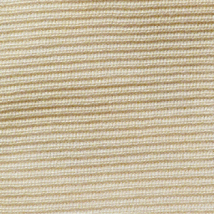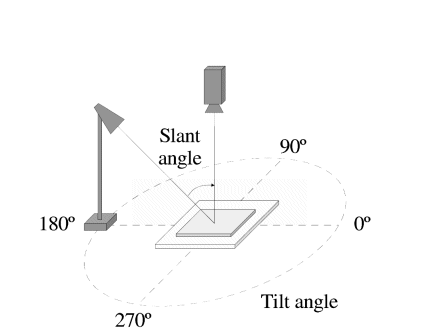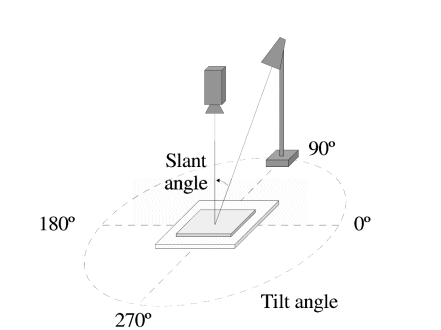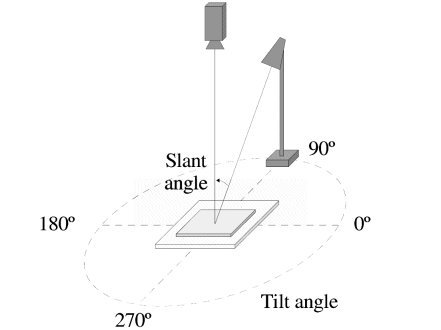Surface Texture Analysis
-
Motivation: Reduce the texture
classification errors caused by changes in imaging geometries: illumination
direction, camera distance, etc.
-
Model-based Texture classification
-
Virtual database creation: we create a set of virtual images which is used
as a reference for the classification purpose. Colour Photometric Stereo
is used to recover the surface information, as well as to render new images
of the same surface texture under different directions of illumination.
- Learning process (Feature selection/ Feature evaluation)
- Classification process (Nearest Neighbour classifer)
-
Illuminant tilt angle prediction
Texture Database
Our texture
database consists of twenty five different
textures. We used real textures commonly found in our every day life: simple
textures based on different cloth, paper, etc, and other textures formed
by repeating primitives of foods such as beans, lentils, spaghetti, chips,
etc.
The database contains:
-
Different Colour Photometric Stereo sets of images captured at two distances
A and B (longer than A).
-
Testing images at distance A and B. The images were captured using 12 or
24 illuminant tilt angles between 0º and 360º incremented by
steps of 15º or 30º. All surfaces were lit at an elevation angle
of 55º.
|







